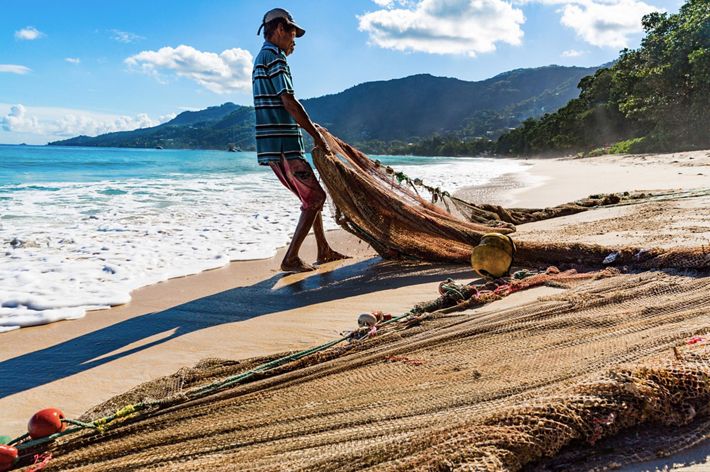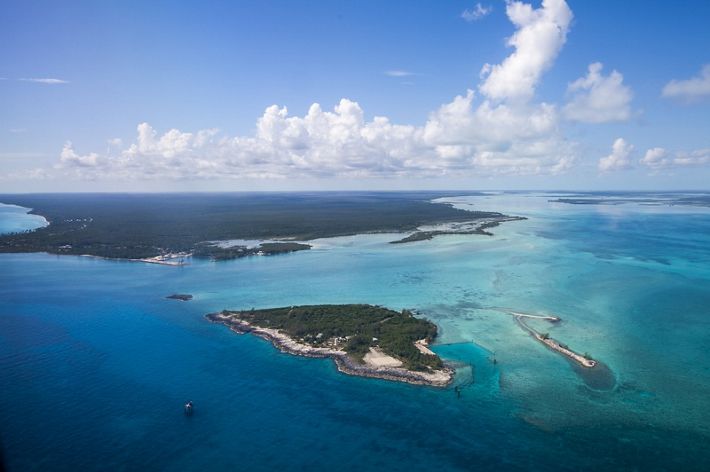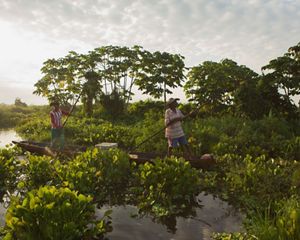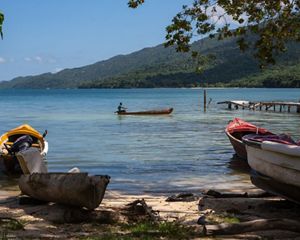Advancing Critical Public Policy Issues for a Sustainable Future
Europe is seen as a leader in ambition, innovation and public policy, which regions and countries around the world look to for global influence.
Climate change, biodiversity loss, and unsustainable levels of dependence on ecosystem services are global challenges rooted in, and impacting, multiple economic sectors—including energy, water, and food—with detrimental effects to the health of both people and nature. Achieving transformational outcomes for climate and biodiversity require a systems thinking approach and depend upon catalysing policy changes, spanning local to global, as well as fundamental improvements in corporate practices, and innovations in the financial and philanthropic sectors.
Recognizing the global role that European countries and institutions play in driving the multilateral and bilateral agendas on both climate and biodiversity, The Nature Conservancy expanded its operations into Europe in 2008, with the main objective of contributing to policy processes that make a tangible impact against these global challenges. Our approach is to make our scientific research and results from multidisciplinary on-the-ground implementation available in partnership with communities and businesses, and to convene a broad range of sectors (private sector, finance, philanthropy) to foster coordinated actions that mobilize ambitious innovation-based climate and biodiversity strategies.
The Nature Conservancy’s scientific methods and user-friendly tools, backed by hard data, have already contributed to identifying and quantifying the true economic contribution of nature and the ecosystem services it provides. We have shown the power of restoration in coastal, water, food, and urban systems that protect and enhance nature’s services, while also contributing to more resilient, equitable and sustainable development.
We work collaboratively with governments, coalitions and global platforms to increase awareness of environmental challenges, help frame policy priorities, and contribute to advance solutions in the global governance of climate change, biodiversity, and sustainable development.
Quote
The Nature Conservancy advocates for changes to policy and practice that enable the conservation strategies we’ve pioneered to become the new ‘business as usual.’
How Do We Work?
Our policy agenda spans from local to global
The Nature Conservancy collaborates at all levels, from local to international, and across many sectors of society and the economy to shape an ambitious vision that enables the development and implementation of policies, strategies and actions for climate change and biodiversity. As a non-state observer, TNC participates in global negotiation processes (e.g. UN Convention on Biological Diversity (CBD), UN Framework Convention on Climate Change (UNFCCC)) and is a member and contributing partner to a host of influential global coalitions and platforms (e.g. Nature4Climate, NDC Partnership, FEBA, Global Center on Adaptation, Insuresilience). We also participate in regional decision-making platforms around the world (e.g. CARICOM, ASEAN, Coral Triangle Initiative) and works in 72 countries to implement on-the ground solutions at the sub-national and national levels, that contribute to the achievement of Nationally Determined Commitments and National Biodiversity Action Plans.
Our policy agenda aims for transformation and supports system thinking
TNC supports policy processes designed to implement sustainable development that address underlying causes, incorporate opportunities, and create a sense of ownership through engagement of diverse stakeholders across society, environment, and economy. Because climate and biodiversity challenges are interlinked, we use the theory of transformational change and rely on system thinking to better understand the behavior of complex, dynamic systems, and assess and manage risks to help guide decision-makers on how and where to make policy interventions.
Our policy agenda contributes to innovative conservation financing
Through innovations including our in-house NatureVest team, TNC has amassed more than 30 years of pioneering conservation finance acumen. Since 2008, we’ve succeeded in mobilizing over $300 million in European public funding for global conservation. Our expertise covers diverse areas including the development of trust funds (e.g. Conservation Trusts, Water Funds, etc.), set up of financial architecture (e.g. Caribbean Biodiversity Fund and National Trust Fund systems), the development of market based financial instruments (e.g. reef insurance in Quintana Roo, Mexico), and impact capital debt conversion (e.g Seychelles ‘Debt-for-Nature’ Swap), among others. These conservation finance experiences have strengthened linkages among economic, social, and environmental benefits, across two thematic priorities: (1) augmenting climate policies that enhance emission reductions and resilience; and (2) advancing conservation outcomes through policies and corporate practices that enable investment in nature-based solutions and catalyze sustainable provision of food and water.
A Shared Strategy for Funding Conservation
The Nature Conservancy helped to conceptualize and launch the Caribbean Challenge Initiative (CCI) in 2008, working closely with other nongovernmental organizations and several Caribbean governments. Recognizing the need for a unique financial support structure to ensure the success and longevity of CCI achievements, The Nature Conservancy engaged with partners to help establish the Caribbean Biodiversity Fund (CBF), committing to raise significant capital with which endow the fund, and inspiring others to do the same. The CBF was created with two goals: Goal 1 - to effectively conserve and manage at least 20% of the marine and coastal environment by 2020; and Goal 2 - to establish fully functioning sustainable financial mechanisms that will provide reliable funding over the long term.
The CBF launched in 2012 with initial commitments of both public and private funding from the German government through the German Development Bank (KfW) and the Federal Ministry of Development Cooperation (BMZ), the Global Environment Facility through The World Bank and the United Nations Development Program, and from TNC itself. In 2016, TNC met its US$8 million commitment goal and secured the funding pledges made by the German government and the Global Environment Facility. In the same year, the CBF reached its initial goal of US$42 million in committed funds, which allows for a sustainable and renewable flow of funding to support biodiversity conservation across the CCI. In 2016, KfW committed an additional US$27 million from the Federal Ministry of Environment and Nuclear Safety (BMU) to finance measures for adapting to climate change in up to 10 small Caribbean island states. This additional support was part of the International Climate Initiative (ICI).
Caribbean Biodiversity Fund Achievements in 2020
-
3.2M
acres in the Dominican Republic to protect coral reefs.
-
318k
acres added to the Bahama's Andros West Side National Park.
-
260k
acres declared to be protected in Hati.
Today, The Nature Conservancy continues to coordinate with governments and NGOs, facilitating partnerships and the establishment of National Conservation Trust Funds (NCTFs) that will work with the CBF to provide a secure financial foundation for long-term conservation success. Furthermore, The Nature Conservancy acts as the technical advisor of the CBF, ensuring that the biodiversity and adaptation measures are well-designed and effectively implemented.
Beyond financial support, the CBF brings together diverse stakeholders to collaborate on common conservation issues, helping to raise awareness and build capacity to address these issues at a region-wide scale. In 2020, the CBF celebrated the strong efforts and commitment of the now 11 governments that voluntarily took on the 20-by-20 Goal – The Bahamas, British Virgin Islands, Dominican Republic, Grenada, Haiti, Jamaica, Puerto Rico, Saint Kitts & Nevis, Saint Lucia, Saint Vincent & the Grenadines and the U.S. Virgin Islands.
Already, meaningful and lasting progress has been made. The Dominican Republic declared just over 3.2 million acres of newly protected area that protects coral reefs, sharks and sea turtles. The Bahamas expanded Andros West Side National Park from 882,000 acres to nearly 1.3 million acres, which includes important fish habitat and mangrove forests.
Saint Kitts & Nevis declared a new protected area that encompasses a 2-mile radius around the entire island nation and includes 60% of its nearshore marine shelf. And Haiti declared nearly 260,000 acres in new protected areas, bringing the country just over its 20% goal.
The establishment of the CBF is a visionary accomplishment that demonstrates the way in which meaningful partnerships can bring about profound advances in conservation and sustainable development in the Caribbean for generations to come.
The Nature Conservancy in Europe
Learn about how we manage a portfolio of strategically important conservation work in Europe that contributes to our global conservation agenda and accelerates conservation impact across the globe.





